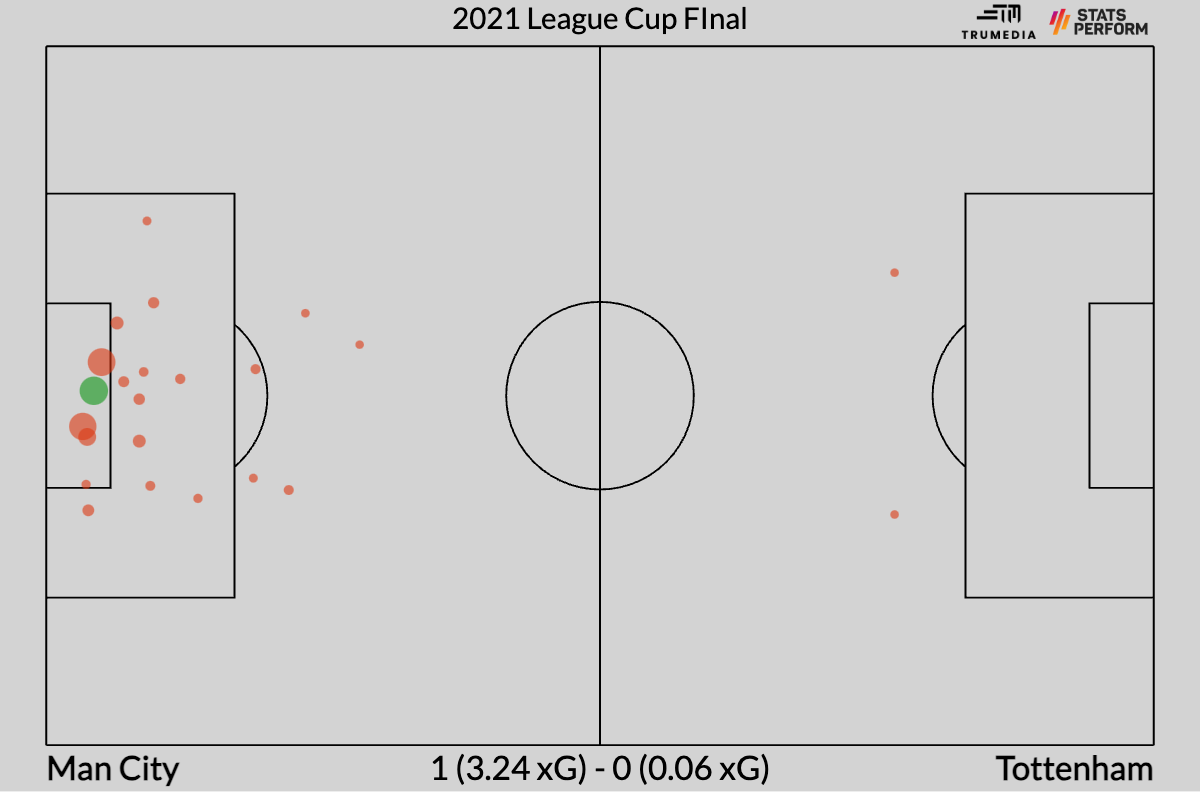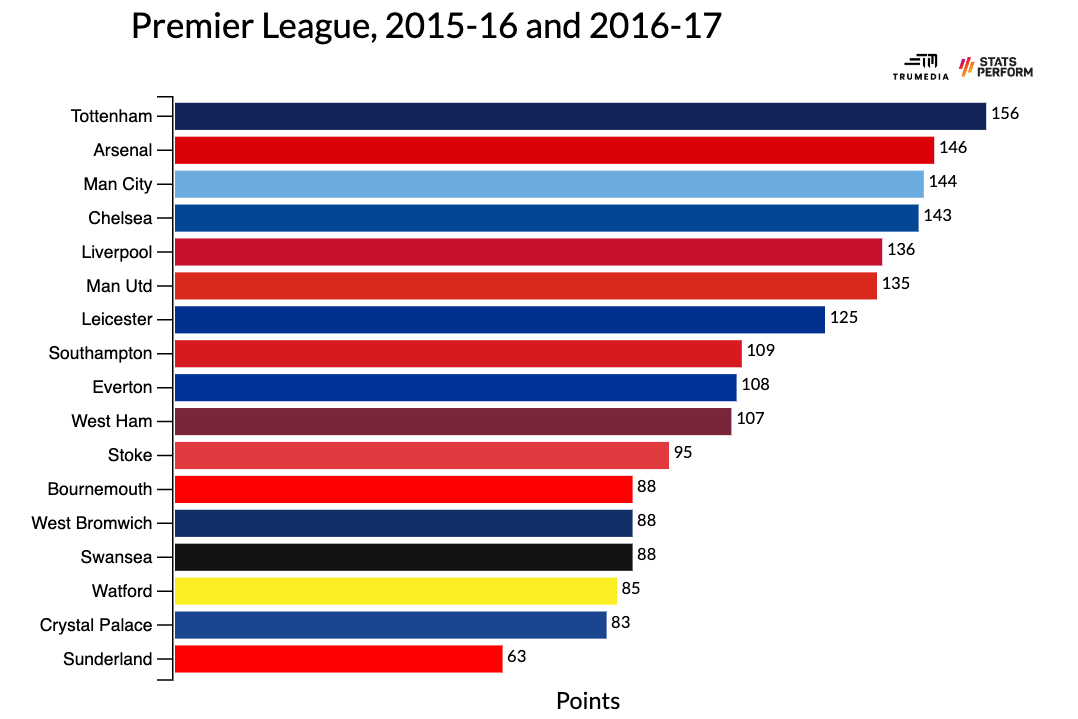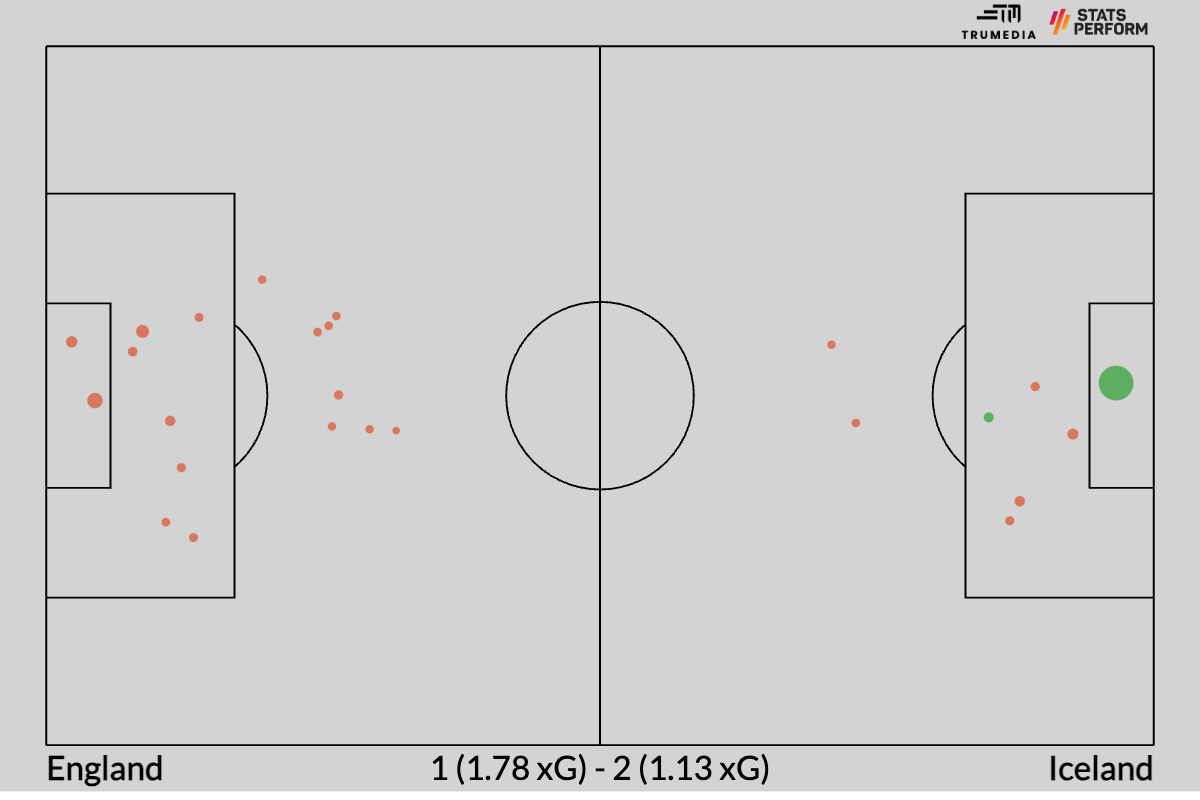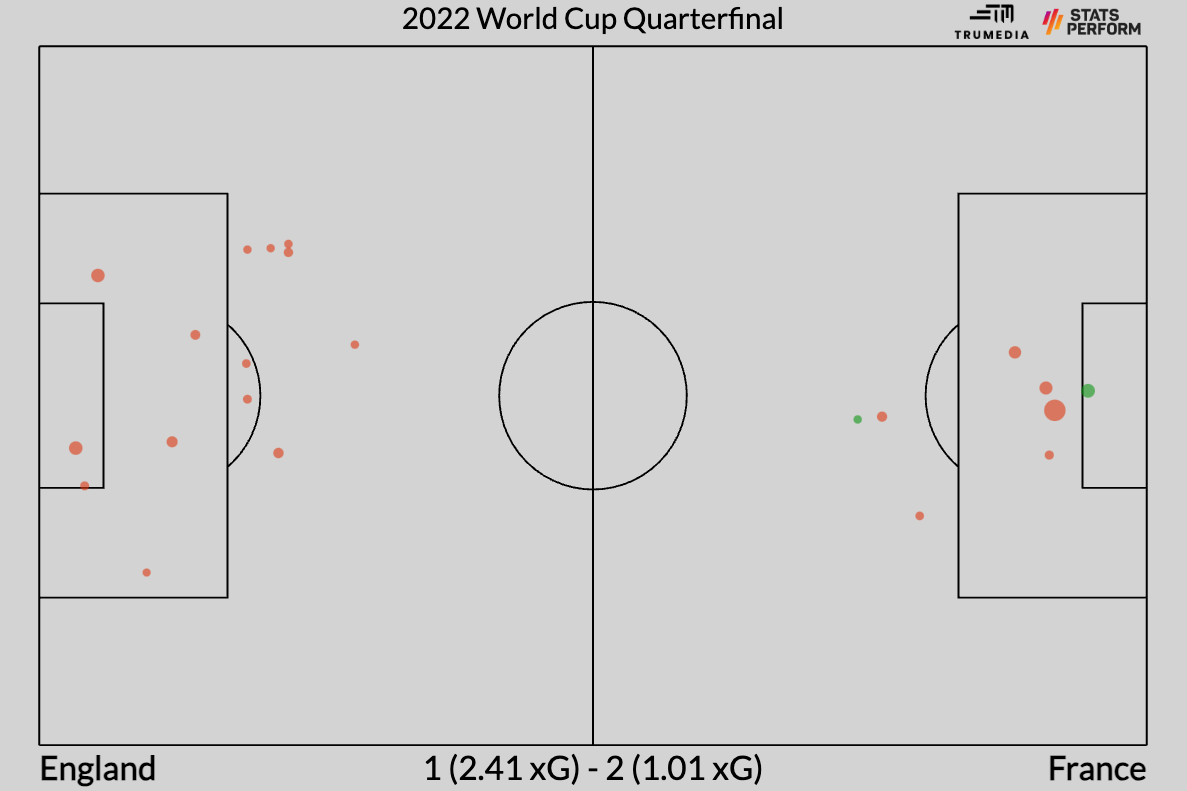|
Let's just say I created a hypothetical soccer player for you. He's the captain of the national team for one of the countries that claims it created soccer. For this country, he has scored 62 goals -- nine more than any other player to ever represent the team. And so far, he has appeared in 22 total games across the European Championships and the World Cup -- tied for the most with one other player. His performance at the national-team level is legendary, but it also doesn't touch his level of play at the club level. Since 2010, only five players across Europe's five biggest leagues have scored and assisted more combined goals than him. Four of them no longer play in Europe, and the other one is five years older than he is. Most of those goals, too, came in the toughest and wealthiest league in the world -- a place where he has 19 more goal contributions than anyone else since 2010. At only 30 years old, he has scored 213 goals in that league -- the second most in the history of the competition. He would've shattered that record had he not moved abroad to a new league, where, in his first season, he has scored 31 goals -- the most by a player in a debut campaign. He still has eight games left to go, too. This new league's full-season record of 41 goals is within his reach. And, as exemplifies his all-around attacking impact, he also has seven assists. Across Europe's major leagues, he has nine more goals plus assists than any other player. The gap between him and second is the same size as the gap between second and 14th. • Stream LIVE on ESPN+: Bayern Munich vs. Dortmund, Saturday, 1 p.m. ET Now, if I made you guess, you'd say that this player has won plenty of trophies. A minimum of five, maybe 10, or something more? That kind of goal scoring and creating ability is the driving force behind all of soccer's great teams -- and there are so few players capable of it that the teams with those players tend to monopolize the championships across a given era. But what if, instead, I told you that this player has never won a trophy. None. Not a continental championship, not an international tournament, not a domestic league, not a borderline-even-serious cup. You might wonder exactly what I'm beginning to wonder: Is Harry Kane cursed?
Trophyless at Tottenham HotspurFor the first nine full seasons of his professional career, Kane put a curse on himself: he played for Tottenham. And no, I don't mean this in the derogatory "Spursy" way that everyone likes to talk about -- as if there is some ineffably weak characteristic about the club that enables them to get into position to do something great, only to fall short in the most hilarious and catastrophic way possible. If anything, "Spursy" is an economic descriptor. Since 1996, Spurs have been, on average, the sixth-richest team in England. If Tottenham were "Spursy," they were "Spursy" only because their comparative lack of resources meant that they were forced to rely on inconsistent and imperfect players who could not string together enough consecutive performances to get over the finish line. Per the consultancy Twenty First Group, a team with Tottenham's financial resources was expected to win 1.6 trophies from 2013-14 through 2022-23. "This number may feel relatively low, but the model is based on wage bills relative to other teams in each competition," said Aurel Nazmiu, senior data scientist at Twenty First Group. "Compared to the other 'Big Six' in the Premier League, Spurs were always spending considerably less on wages and therefore had lower probabilities than the likes of Manchester United or Manchester City." Still, according to my math, zero is significantly less than 1.6, and Spurs won zero. In the 2014-15 season, Kane's first as a starter with Spurs, he scored 21 goals and added four assists. As a 21-year-old, his 25 goal contributions were the second most in the league. Tottenham reached the League Cup final, where they played eventual league winners Chelsea. And in the final, Kane scored the winning goal ... for the wrong team. John Terry mishit a volley into the ground, only for it to bounce into Kane's leg and deflect into his own goal, past goalkeeper Hugo Lloris. Chelsea went on to win, 2-0. The closest Tottenham came to winning a major trophy was in the 2019 Champions League final against Liverpool. This was one of Kane's worst matches I can recall -- and it occurred during a two-year stretch when it seemed like an ankle injury had sapped him of his world-class goal-scoring power. After notching 25, 31 and 29 goals in consecutive seasons, Kane dropped down to 17 in 2018-19 and 18 the season prior. He has since reinvented his greatness by becoming a world-class passer and facilitator -- it's unfortunate that Spurs came closest to winning something big when Kane was the furthest from his best. He took only one shot in the Champions League final in 2019, but even that match was decided by a bizarre occurrence totally outside of Kane's control. Spurs were underdogs to begin with, and then Sadio Mané kicked the ball into Moussa Sissoko's hand, Mohamed Salah scored the penalty, and Liverpool were up 1-0 less than two minutes into the game. Two years later, Tottenham made the League Cup final but were totally dominated by a vastly superior Manchester City team. The game ended 1-0, and it should've been way worse. Red are shots, green are goals, and the bigger the circle, the higher the expected goals, or xG:  Tottenham's best pre-tournament win probability, per Twenty First Group, came the following season in the 2021-22 UEFA Conference League. Or, rather, one of the few times they had a financial advantage over all of their opponents. Still, that meant just about a 30% shot at taking home the trophy. Then they were embarrassingly knocked out in the group stages during the tail end of the disastrous managerial tenure of Jose Mourinho. But they also didn't really try to win it, either. Kane led all players in the competition with 1.7 goals plus assists per 90 minutes -- it's just that he started only three matches. Plus, the main reason they went home is something Kane himself had no effect on: their opponents turned shots worth 4.2 expected goals into 11 actual goals. Because of the randomness of knockout tournaments, Tottenham's best shot at winning something was always somewhere other than the 38-game, play-everyone-twice structure of domestic play. But even in the Premier League, Kane's teams missed out on a trophy for a similar combination of reasons: bad luck and bad timing. Their highest finish in the Premier League table came in 2016-17. They led the league in goal difference in both the 2015-16 and 2016-17 seasons but somehow weren't able to convert that advantage into enough points to win in either 38-game season. That seems fishy, but it gets even fishier. Across those two seasons combined, Tottenham led the league in the four statistical categories that most directly result in winning trophies: • Goals: 155
• Goals against: 61
• Goal difference: plus-94 And here's how they stacked up with all of the other ever-present Premier League teams in points won:  Over a two-season stretch, Tottenham won 10 more points than any other team in England. They had the best offense. They had the best defense. In pretty much every conceivable way, it's way harder to do that than it is to lead the league in points over just one season. They did it over 76 games. Somehow, they couldn't do it for one set of 38 games from August through May. The following season, they might have been even better, too. Their expected-goal differential per game went from plus-0.61 in 2015-16, to plus-0.78 in 2016-17, to plus-0.82 in 2017-18. Once again, though, their timing was horribly off. Their best season coincided with the best season in Premier League history: Manchester City winning 100 points.
England's complicated relationship with penaltiesAt Spurs, it was a cruel mix of overachievement and underachievement. Tottenham were way better than a team with Tottenham's resources should ever be mainly because they had Harry Kane. But for as good as Tottenham actually were at times, they didn't win as many trophies as a team of their level should have. With England, though, the disappointment is much more straightforward. At his first major tournament with England, the 2016 Euros, Kane and his team suffered one of the most embarrassing upsets in Three Lions history, losing 2-1 to Iceland in the round of 16. It's also a game that could've easily gone the other way. Again, red are shots, green are goals, and the size of the circle is based on how much xG the attempt was worth:  Then, at the 2018 World Cup, where Kane won the Golden Boot for most goals scored, England went up 1-0 against Croatia in the semifinals after five minutes. They held the lead for another hour before Ivan Perisic jumped over Kieran Trippier and karate-kicked the ball past Jordan Pickford. The match went to extra time, and then Mario Mandzukic scored the winner, 10 minutes before the game would've gone to penalties. Both of those tournaments, though, seemed to occur before England's next generation had begun to solidify. The Premier League's financial advantage was already obvious by 2018, but the league's investments across the academy system hadn't quite paid off yet. Come 2021, that was starting to happen. And at the Euros that year, Kane led England in goals as they reached only their second final in a major competition. In the final against Italy, they went up 1-0 with the first shot of the match, off a full-back combination from Trippier to Luke Shaw. From there, though, England hung on for dear life. Italy dominated play, and Leonardo Bonucci tied the match in the 67th minute -- almost at the exact same time that Perisic tied the score three years earlier. This time, though, England survived extra time and made it to penalties. Kane was once again quiet in his second final -- just one shot attempted across 120 minutes -- but he buried England's first penalty of the shootout to even the score at 1-1. After an Andrea Belotti miss and another conversion from another Harry (Maguire), England were up 2-1, heavy favorites for their first major trophy since the 1966 World Cup. Bonucci tied it at 2-2 ... and then England players missed three penalties in a row, and Italy won the tournament. A year and a half later, England looked like a genuine contender at the 2022 World Cup after four matches. The winner of their blockbuster quarterfinal matchup against the defending champs, France, would then be heavily favored in a semifinal matchup against Morocco. France went up 1-0 from an early, once-in-a-lifetime strike from their defensive midfielder, Aurelien Tchouameni. Kane then tied the game with a penalty in the 54th minute before, against the run of play, Olivier Giroud gave France the lead in the 78th minute. England's constant pressure, however, led to another penalty in the 84th minute. Kane stepped up ... and sent the ball into outer space. England lost, 2-1, in a match they easily could've -- and perhaps should've -- won:  Across his entire career, Kane has attempted 73 penalties: 65 of them went in, five were saved, and just three of them have missed the goal.
Bayern Munich and their Bayer Leverkusen problemAfter Kane moved from Tottenham to Bayern Munich this past summer, surely the trophy drought would end. Bayern had won 11 straight Bundesliga titles. They'd be favorites to win the DFB Pokal Cup, and with the team managed by Thomas Tuchel, who won it all with Chelsea in 2021, they'd also be among the favorites to take home the Champions League. If there was one weakness Bayern had in the previous season, it's that they literally did not have a center forward. And they fixed that issue by signing arguably the world's best center forward in Harry Kane. Per Twenty First Group's estimates, Bayern were expected to win 1.3 trophies. The preseason percentages: • Bundesliga: 70%
• DFB Pokal: 49%
• UEFA Champions League: 12% The DFB Pokal was the first one to slip away. Bayern conceded four shots and two goals en route to a shock 2-1 loss to third-division Saarbrucken. The match was such an afterthought to the club that Kane didn't even play. The Bundesliga, too, is all but gone, as Bayern trail Bayer Leverkusen by 10 points with eight games remaining. Can we blame that on Kane? Of course not. Depending on how you feel about the quality of the competition, Kane is having his best season of an already all-time-great career. He's averaging 1.37 nonpenalty goals plus assists per 90 minutes. It's by far the best mark of his entire career. And across Europe's "Big Five" top leagues this season, Kylian Mbappé is the only other player with at least 20 starts to be over 1.0 (1.12). For reference, Cristiano Ronaldo broke 1.3 goals plus assists per 90 only once in his whole career. Lionel Messi did it seven times, but Kane's current rate is still above Messi's career average in Europe. Kane really might just be the best player in the world this season -- and despite the lack of trophies, he has made Bayern better. They're scoring three goals per game -- more than they have at any time during their title run. Now maybe there's a world where Kane's inability to press off the ball means that his presence is improving the attack but hindering the defense to a greater degree and therefore making the team worse overall -- despite his stellar individual numbers. On its face, it seems like this might be happening. Bayern are conceding 1.2 goals per game this season -- more than in any of the previous 11 seasons and well below the average (0.8) over that span. Except, they're conceding only 0.9 expected goals per game -- which is exactly what the average of the previous 11 seasons was. If Kane's presence had created a systemic weakness in Bayern's defense, we'd expect it to show up in the quantity and quality of chances they're conceding, but that hasn't happened. Instead, what's happening is that goalkeeper Manuel Neuer is having the worst season of his career, and Bayern's opponents have been picking out the corners more often than not. Even with the leaky back line, though, Bayern are on pace to finish the season with 78 points. Their average over the past five seasons? It's 77 points, and they won the league each time. Last year, they won it with 71 points. Instead, it's again something wholly outside of Kane's control: Xabi Alonso's Bayer Leverkusen are on a once-in-a-generation hot streak. Through 26 games, Leverkusen have 70 points -- the second most accrued by a first-division German team. The only team with more at this stage of the season was Pep Guardiola's 2013-14 Bayern Munich side with 74 points. In other words, all but one of the previous 11 Bundesliga-winning Bayern teams would have been behind this Leverkusen side, too. And just in case you thought Kane & Co. might rally and win the Champions League, they've landed on the same side of the bracket as the three other favorites to win the tournament: Manchester City, Real Madrid and their quarterfinal opponents, Arsenal. It doesn't look good for them. This streak is going to end at some point, though. Kane is just too good, Bayern are just too rich and the England national team players are just too talented. Something is going to give, somewhere along the way. It might be the Champions League this year, the Euros this summer, or the Bundesliga next season. It could even be all three. While he's (probably) not actually cursed, one of the greatest players of all time -- Kane really is that good -- has somehow been caught going the wrong way against both sides of modern soccer's competing currents. The financial structures of the game make it really hard to maintain any kind of sustainable success if you're not the richest or one of the two or three richest teams in your own country. At the same time, the ball is still round enough and bouncy enough to make it so that no kind of financial disparity makes any result impossible on a given day or over the course of a given season. After a decade of both overcoming and being crushed by the averages, they will eventually go Kane's way. I mean, they have to ... right?
|

